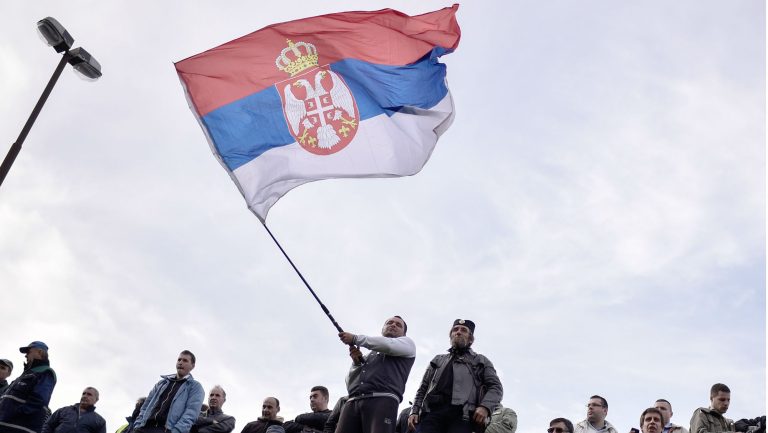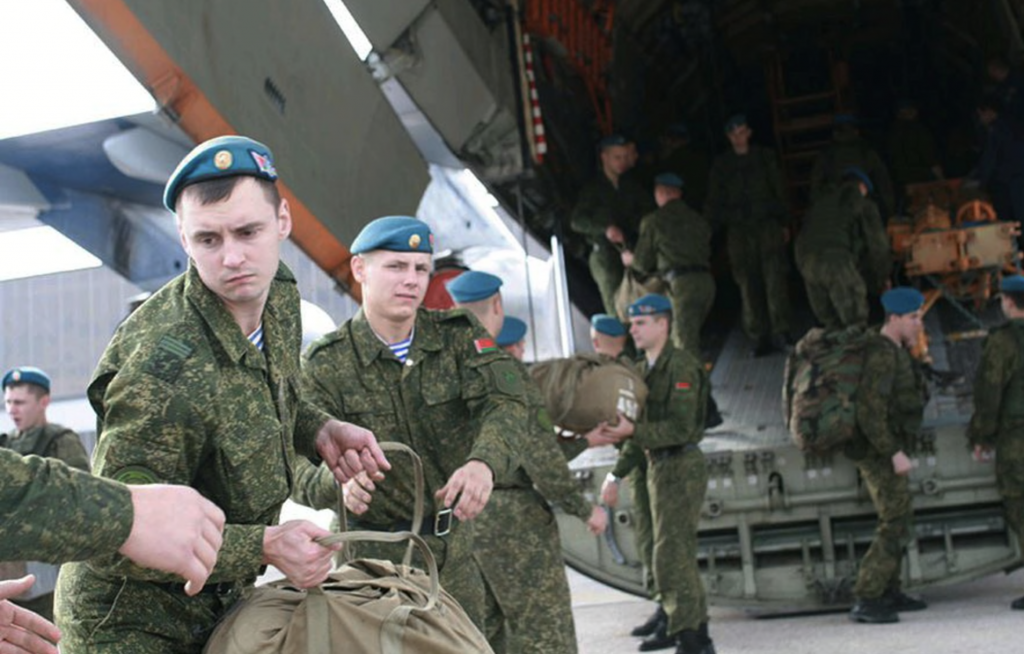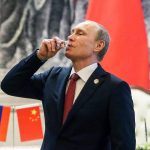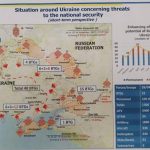The Western Balkans has always been a challenge in itself, but recently new security challenges have risen in the region known also as the “gunpowder keg” region. The source of instability threats in Balkans is easily traceable. The country who is holding the Balkans security hostage by setting conditions for the European Union and NATO and taking advantage of all the weak points of the west on one hand, and in the other hand, keeping ties with Russia and China. Serbia, eats with two spoons in two dining tables at the same time. The latter is considered the biggest destabilizer in the Balkans, which endangers the national security of at least three countries in the region, for its own interests which meet by serving as a proxy of the Kremlin who also has a wider geostrategic interest in the Western Balkans.
Threat to security and instability in the Balkans comes from malignant external influences and originates in Russia through Serbia. Physical presence of Russian agents in the region has been increased significantly in last two years, especially in Montenegro, BiH and Kosovo. Four alleged Russian spies were arrested last week for illegal passage through Serbia border with Kosovo. In fact, Kosovo has made significant progress in strengthening the security sector in recent years, due to the fact that it has sometimes avoided tendencies from abroad to produce new situations in favor of destabilization, but has a long way to go, with all frequent threats coming from outside.
Abit Hoxha, a close observer of Russian disinformation warfare and media war claims that threats to the Balkans have an asymmetric proportion and are of very sophisticated nature. “Russia targets the Balkans with a detailed plan of influence of both carrots and sticks, depending on the situation. Serbia is the main ´carrot eater´ which turns Serbia into Russian proxy in the Balkans whereas Russian threat or sticks are shown to Montenegro, Kosovo and Bosnia & Hercegovina but often Macedonia too. Russia invests in military technology with Serbia and invests in disinformation campaigns on Montenegro, Kosovo and BiH through its channels and media by producing and injecting fake news items even in local languages. The social media accounts from Russian Ministry of Foreign Affairs have almost weekly tweets attacking Kosovo or speaking fabricated news about non-proxy states in the Balkans”.
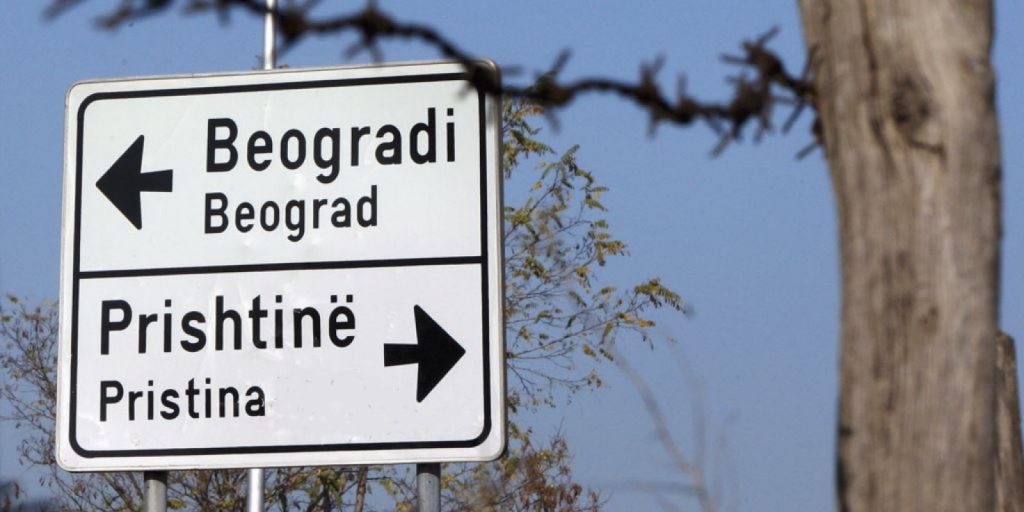
Read also: Serbia’s dangerous alliances and influences
Naturally, Russian connection with Serbia is also the Serbian Orthodox Church and the traditional link to Russian Orthodox Church. Recently, in practice, Serbia has begun to implement the creation of the ‘Serbian world’, backed by Serbian Orthodox Church which is developing similar religious diplomacy in favor of chauvinism. Calls by Interior Minister Aleksandar Vulin for all Serbs wherever they are to join the ‘Serbian world’ fuel the deteriorating situation in BiH and Montenegro, and partly in Kosovo. Serbia’s armament and readiness to assist Republika Srpska in case of conflict, at a time when Bosnian Serbs want it disbanded, is a direct threat to security in the Balkans. From past, Western Balkans region knows well what the armament of Serbia means for security.
The rapporteur for Kosovo in the European Parliament, Viola von Cramon, in an editorial for the Euractiv newspaper had stated that Serbia is being favored within the European Comission, by the people of Hungarian Prime Minister, Viktor Orban, who is known for his special ties with Vladimir Putin. Cramon had directly accused EU Enlargement Commissioner Oliver Varhelyan for writing a positive Progress Report to Serbia in favor of Vucic for the upcoming elections. Changing the Balkan integration strategy into the European Union, is necessary to stop the development of the influence of non-liberal countries in this area. At this stage when Serbia is being favored by its people within the European Commission, the latter must change its approach by imposing and implementing stricter measures on Serbia, as a destabilizer of the Balkans, in order to restore confidence in other countries in the region.
Another challenge is propaganda. Misinformation of public opinion on sensitive topics have been the target of the Russian and Serbian media recently for the events in Northern Kosovo. One of them was the circulation of untrue information about the entry of Kosovo Security Force troops in the north, which was denied by the Ministry of Defense, but this was not enough. Joint capacities and strategies must be built to fight Russian and Serbian propaganda in the Balkans. The Serbian state is investing millions of euros in this field to alienate the history of the Balkans. In cooperation with Russian Ministry of Foreign Affairs, through “scientific” seminars, they`re producing documents claiming the victimization of the Serbian state. Recently, Serbia has invested in the field of cinematography, a film with six episodes, entitled “Kosovo File” has been announced to be released in early 2022. The film will of course present the Serbian version of the war and post-war in Kosovo in the period 1998-2001.
Strengthening the security sector to combat malignant influences is one of the biggest challenges in BP countries, although there is significant progress and much work remains to be done. Russian espionage is one of the main challenges to which the countries of the Western Balkans that are interested in joining the EU, excluding Serbia, must have strategies on how to protect themselves from this ever-expanding influence, where there are weaknesses of the west side. There is a large number, taken as a whole, of Russian citizens arrested for illegal activities and unauthorized entry and espionage in the Balkans region. They are often camouflaged under false identities. Although progress has been made in building security capacity against this phenomenon, attempts to destabilize it by malignant influences are still troubling.
While countries in the region are competing for armament, Kosovo government is lobbying for the construction of a permanent US military base in Kosovo. The permanent presence of the US military would not only guarantee the security of Kosovo state but would be peace and stability factor for the entire region. Reminding that Serbia last year demanded the construction of a Russian military base in the Balkans in response to the largest US military camp in Kosovo, “Bondsteel”.
Post Author
Author
-

Kosovo based analyst that focuses on current affairs, communication and technology. She studied Albanian Literature, and Economics, Management and Information Sciences. MA in Journalism and Communication. Co-authored the Worlds of Journalism Study report on Kosovo Journalists.
View all posts


